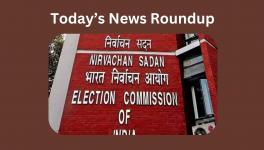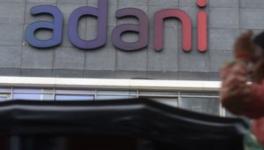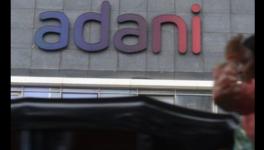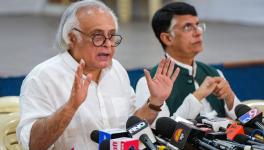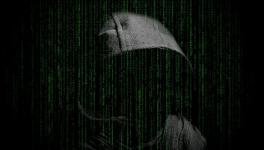Should PwC Be Charged with Forgery in Satyam Case?
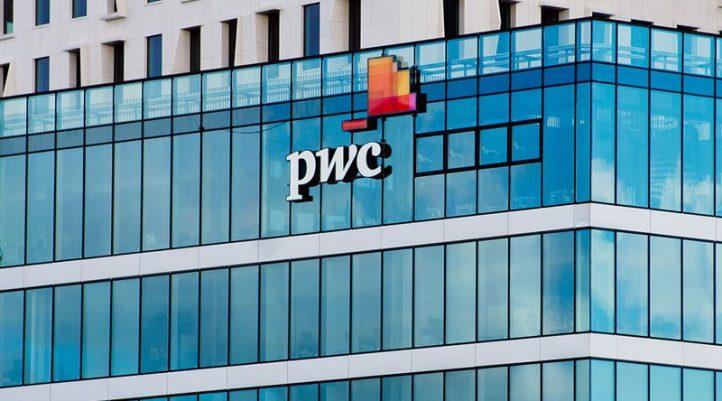
Image for representational use only.Image Courtesy : Bitcoin Magazine
The audit reports of Satyam Computer Services Limited (SCSL) were signed by chartered accountants who were not partners with the statutory audit firm that was supposed to audit the company’s books for a period of eight years—from 2000 to 2008—indicates a closer look at a January 2018 Securities and Exchange Board of India (SEBI) order.
While ‘Price Waterhouse’, one of the audit firms of PricewaterhouseCoopers International Limited (PwCIL) or PwC was the statutory auditor firm of SCSL, two chartered accountants who were partners in other member firms of PwCIL in India, but not partners in ‘Price Waterhouse’ firm, had signed the company’s audit reports from 2000 to 2008. Experts argue that the practice by the firm was tantamount to ‘forgery’.
On January 10, 2018, market regulator Securities and Exchange Board of India (SEBI) has barred all the audit firms of PwCIL in India for a period of two years after its probe found the firms liable for fraud on numerous grounds for falsification of the books of SCSL. SEBI had also fined one of the audit firms, ‘Price Waterhouse Bangalore’, and two auditors or partners, S Gopalakrishnan and Srinivas Talluri, who signed the statutory audit reports of SCSL during 2000 to 2008, an amount of Rs 13.09 crore along with interest calculated at the rate of 12% per annum from 7 January 2009 till the date of payment.
The issue of forgery was not raised as one of the lapses unearthed in the SEBI’s order. However, as per Section 464 of the Indian Penal Code, forgery is defined as making a false document with the intention of causing it to be believed that such document was signed by the authority of a person by whose authority he knows that it was not made or signed.
When PwCIL challenged the SEBI’s order in Securities Appellate Tribunal (SAT), on 9 September 2019, the tribunal quashed SEBI’s ban on PwCIL auditing firms, but upheld the imposed fine. Subsequently, SEBI approached the Supreme Court and got the tribunal’s order stayed. The next hearing is listed on 15 January. Attorney General K K Venugopal is the SEBI’s counsel in the apex court.
What’s in the nomenclature, PwCIL?
The audit firm that signed the engagement letter with SCSL was ‘Price Waterhouse’ with ICAI registration number 301112E. On taking a closer look at the SEBI’s penalising order, it emerges that the auditors or partners who signed the audit reports of SCSL were not part of the firm that was supposed to audit the books of SCSL.
As per the SEBI’s probe, the auditors’ report, balance sheets and profit and loss accounts of SCSL were signed by S Gopalakrishnan, for the period April 2000 to March 2007. He was then a partner in Price Waterhouse, Bangalore (ICAI registration number: 007568S) and Lovelock & Lewes (ICAI registration number: 301056E).
Whereas, the auditors’ report, balance sheets and profit and loss account of SCSL for the period April 2007 to September 2008 were signed by Srinivas Talluri. He was a partner in Price Waterhouse, Bangalore (ICAI registration number: 007568S), Lovelock & Lewes (ICAI registration number: 301056E ) and Price Waterhouse & Co.(ICAI registration number: 050032S). Significantly, both the chartered accountants were not part of ‘Price Waterhouse’ that was supposed to audit SCSL.
Thus, the audit reports are in violation of the then extant Companies Act, 1956 and the Chartered Accountants Act, 1949 (CA Act). As per Section 224 of the extant Companies Act, 1956 (Section 139 of the Companies Act, 2013), the statutory auditors can be appointed only with the approval of the shareholders and has to be specific. Legally, only the partners or auditors of the firm appointed by the shareholders can sign the audit reports. In other words, the mandate given by the shareholders to a specific audit firm cannot be transferred to another audit firm.
As per the provisions of Section 22 of the Chartered Accountants Act, 1949, “A chartered accountant in practice shall be deemed to be guilty of professional misconduct, if he allows a person not being a member of the institute in practice, or a member not being his partner to sign on the behalf of his firm, any balance sheet, profit and loss account, report or financial statements.” That is, the firm ‘Price Waterhouse’, prima-facie, guilty of professional misconduct as per the law.
It is to be noted that the partnership firms of PwCIL operate under resource sharing agreements among themselves, a common practice of PwCIL member firms across the world. Accordingly, these firms share resources, manpower, offices and revenues and so on. However, their agreements are mandated to be in line with the laws of the country they operate in.
According to the data available with the ICAI, as of April 1, 2018, 11 audit firms—‘Price Waterhouse’, ‘Price Waterhouse & Co’, ‘Price Waterhouse & Co Bangalore LLP’, ‘Price Waterhouse & Co Chartered Accountants LLP’, ‘Price Waterhouse & Co LLP’, ‘Price Waterhouse Bangalore’ and ‘Price Waterhouse Chartered Accountants LLP’, ‘Dalal & Shah Chartered Accountants LLP’, ‘Dalal & Shah LLP’, ‘Lovelock & Lewes’ and ‘Lovelock & Lewes LLP’—are registered with ICAI and are member firms of PwCIL. All these firms have their own registration numbers, and were probed by the SEBI in relation to the financial irregularities at SCSL.
The massive financial scam at SCSL came to light when the then chairman of the company admitted and confessed to large-scale financial manipulations in the books of SCSL to the SEBI in January 2009. It was revealed that SCSL, which was also listed New York Stock Exchange had inflated its profits to the tune of over Rs 5000 crore during 2000 to 2008.
On the role of statutory auditors, the SEBI found that the auditors, during the audit process of the
company, “had acted in total disregard to the auditing standards under the AAS (Auditing and Assurance Standards) mandate, pertaining to materiality of information (bank balances and Fixed Deposits), reliability of audit evidence, external confirmation of audit evidence and having an attitude of professional skepticism.” Furthermore, the regulator concluded that the auditors “failed to do the walk through tests in respect of the fake invoices, feigned ignorance of the internal control mechanism, chose to ignore internal audit reports, relied on the ledger entries prepared by the company and did not conduct the Audit as mandated by the AAS or the Guidance Note with bonafide intentions of doing an actual audit.
The similarity in the nomenclature of the PwCIL firms is pertinent that even the SEBI order missed on the point that the partners not associated with ‘Price Waterhouse’ firm had signed the books of SCSL in contravention to the existing laws.
Furthermore, on the question of why SEBI imposed fine on ‘Price Waterhouse Bangalore’, SEBI’s probe found that SCSL had paid that firm for its audit during 2000 to 2008 and hence the regulator has asked the firm and the two auditors who signed the books to disgorge the amount with interest.
NewsClick has sent a detailed questionnaire concerning the nomenclature of PwCIL audit firms and the lapses raised in the article to Nandini Chatterjee, Chief Communication Officer of PwCIL network in India. The queries remained unanswered.
Get the latest reports & analysis with people's perspective on Protests, movements & deep analytical videos, discussions of the current affairs in your Telegram app. Subscribe to NewsClick's Telegram channel & get Real-Time updates on stories, as they get published on our website.













